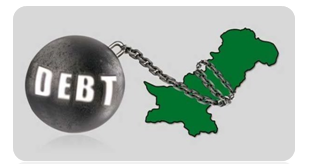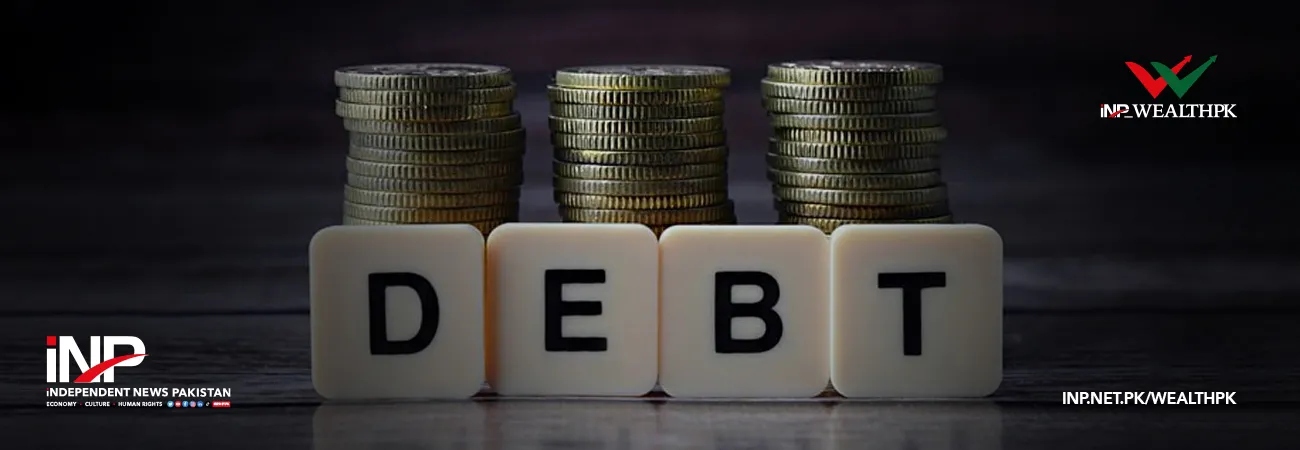INP-WealthPk
Amir Khan

ISLAMABAD, June. 10 (INP-WealthPK) -- Pakistan is grappling with an escalating debt crisis as its debt stock has surged exponentially in recent years, putting immense pressure on the current account.The country's unsustainably high fiscal deficit, which has averaged 7.3% of the economic output over the past five years, has resulted in a national debt that has soared to Rs78.9 trillion. This figure includes Rs43.4 trillion in domestic debt and Rs32.9 trillion in external loans. In an interview with WealthPK, Aslam Javed, chief economist at the Ministry of Planning, Development and Special Initiatives, said that the country is trapped in a cycle of debt, needing to borrow additional funds to pay off its existing obligations. “This has led to a significant increase in annual debt repayments.”
“The government initially projected debt servicing costs at Rs7.3 trillion, which accounted for nearly 58% of the budgeted expenditure for the current fiscal year (FY24). However, recent updates show that these costs have risen to Rs8.3 trillion. To mitigate this crisis, the government must focus on increasing its tax-to-GDP ratio to match global standards by taxing the untaxed and undertaxed sectors and eliminating wasteful expenditure,” he highlighted. Ahsan Ali Mangi, an additional secretary at the Ministry of Commerce, told WealthPK that debt payments soared by over 64% to Rs4.2 trillion in the first six months up to December of FY24. “This rise is attributed not only to the increasing debt stock used to finance the fiscal deficit but also to the surge in domestic debt costs driven by a record-high interest rate of 22%.” He emphasised that spending on debt servicing during this period significantly outstripped tax revenue growth, effectively reducing "spending on development to zero."
He further said that the rising debt servicing costs are primarily due to elevated domestic interest rates. “With nearly 80% of the fiscal deficit being financed through commercial bank loans amid dwindling official foreign flows, domestic interest rates have become a significant concern. Domestic debt payments accounted for nearly 90% of the total debt servicing costs in the first half of the fiscal year. The high cost of borrowing has had a ripple effect across the economy, stalling new private investment and stagnating growth,” he pointed out. Mangi concluded by emphasizing that bringing the fiscal deficit down to sustainable levels is essential for reducing the need to borrow for budget financing.
Credit: INP-WealthPk













